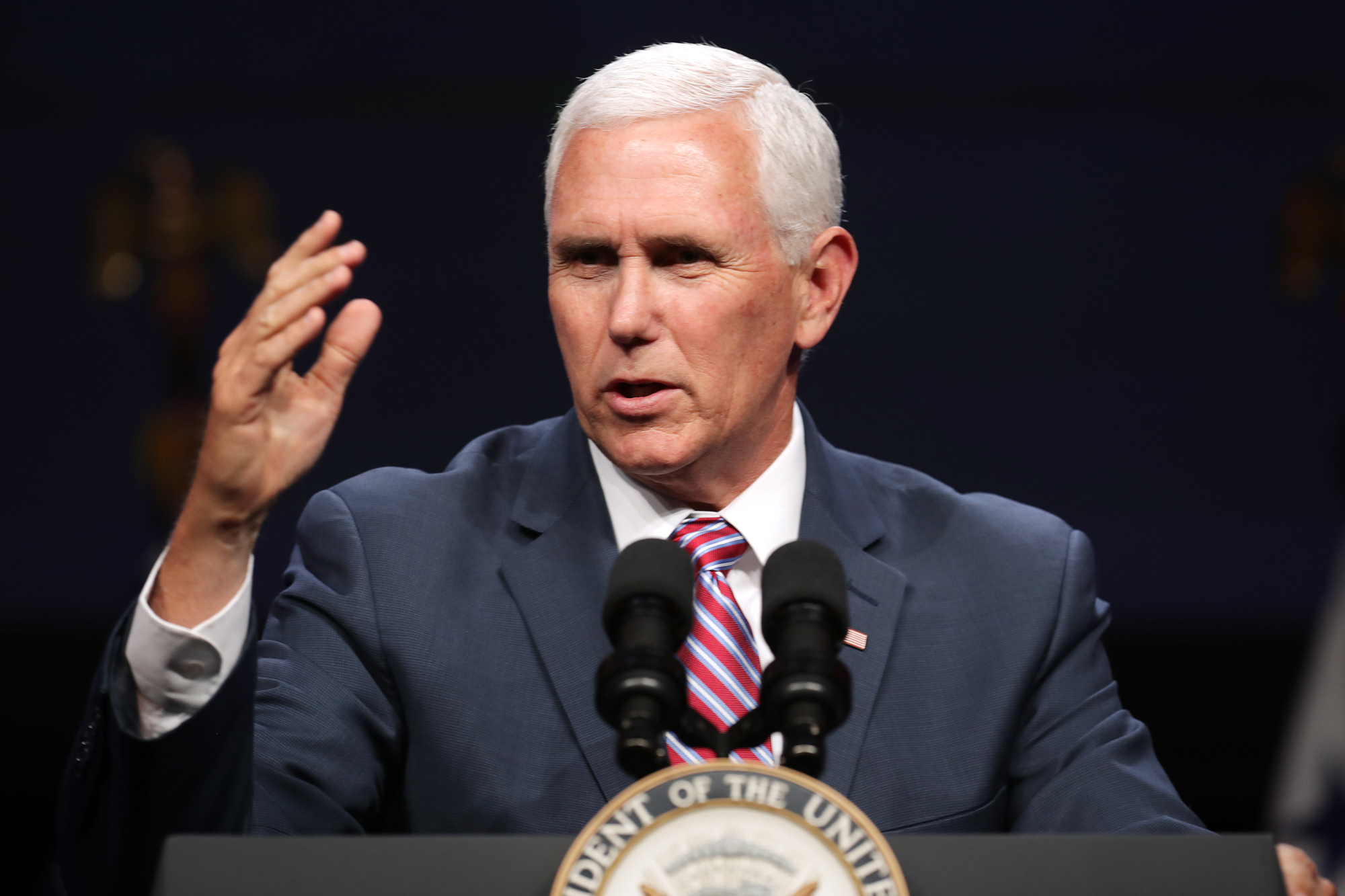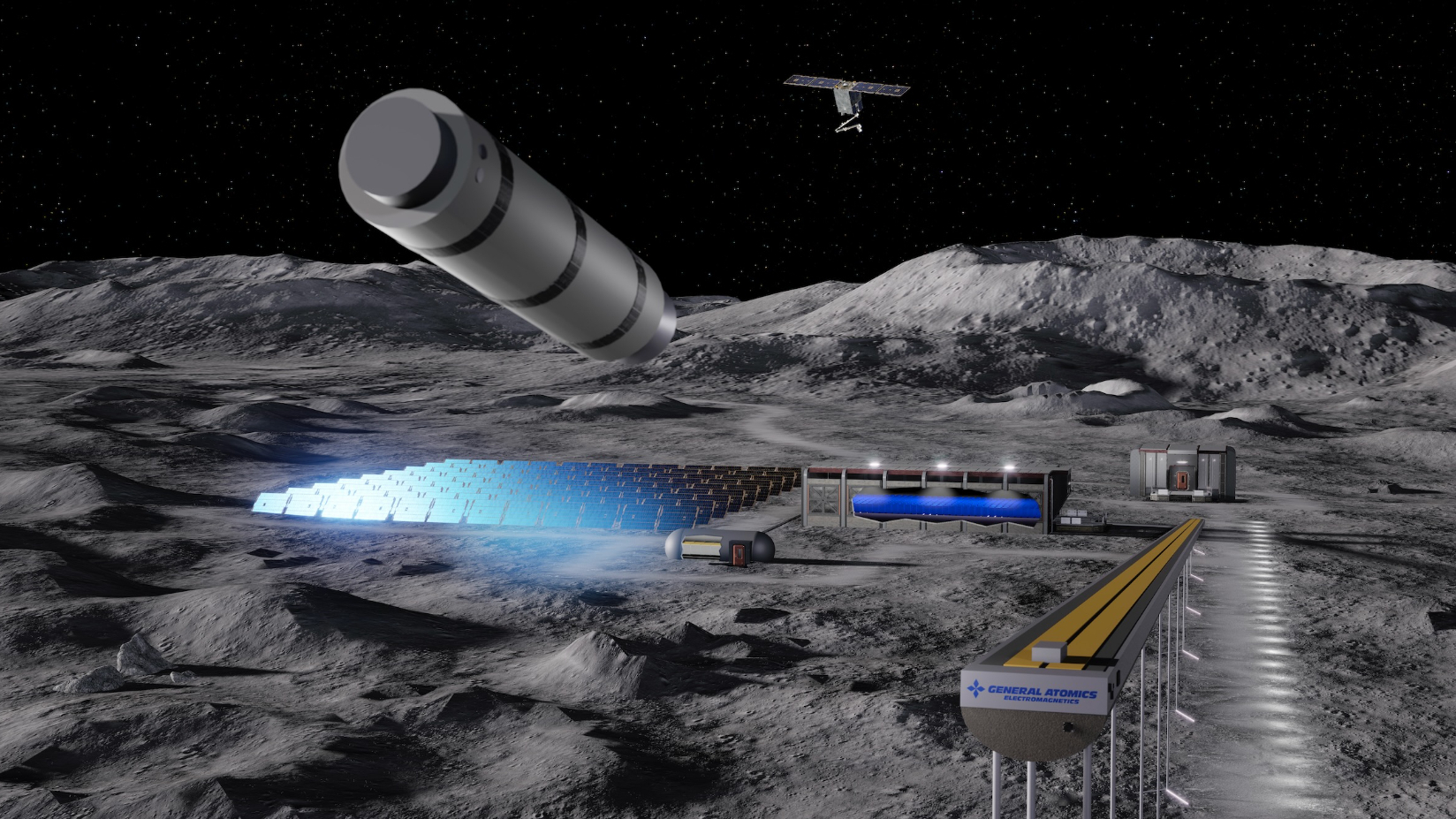Pence Reaffirms Trump Administration's Support for Space
But there were no new announcements.

Breaking space news, the latest updates on rocket launches, skywatching events and more!
You are now subscribed
Your newsletter sign-up was successful
Want to add more newsletters?

Delivered daily
Daily Newsletter
Breaking space news, the latest updates on rocket launches, skywatching events and more!

Once a month
Watch This Space
Sign up to our monthly entertainment newsletter to keep up with all our coverage of the latest sci-fi and space movies, tv shows, games and books.

Once a week
Night Sky This Week
Discover this week's must-see night sky events, moon phases, and stunning astrophotos. Sign up for our skywatching newsletter and explore the universe with us!

Twice a month
Strange New Words
Space.com's Sci-Fi Reader's Club. Read a sci-fi short story every month and join a virtual community of fellow science fiction fans!
WASHINGTON — Vice President Mike Pence used a speech at a major space industry conference Monday (May 6) to restate the Trump administration's space policy efforts without making any major new announcements.
In a 20-minute luncheon keynote at the Satellite 2019 conference here, Pence outlined the various efforts the administration had taken in the last two years on space issues, from proposals to establish a Space Force to regulatory reform to his recent call of landing humans on the moon in the next five years.
"Since day one of our administration, we've worked to restore America’s proud leadership in space," Pence said, "because leadership is essential to our nation’s security, our prosperity and our very way of life."
Related: US Is in a New Space Race with China and Russia, VP Pence Says
His speech touched upon a number of ongoing initiatives, particularly in communications and other aspects of commercial space relevant to the audience. However, there was little in the way of new developments in his remarks.
One example was access to spectrum. "We will ensure that you have continued access to wireless spectrum," he said. Most of his comments that followed, though, focused on more general issues about spectrum, including upcoming auctions of spectrum for 5G services, and not specific issues about satellite spectrum.
He also cited the work on space traffic management as described in Space Policy Directive 3, published last June. He did announce that the Commerce Department will unveil the first part of its "open architecture data repository" for space situational awareness data this summer. That repository will combine data from government and commercial sensors "so that companies just like yours have the best real-time information to navigate in space."
Breaking space news, the latest updates on rocket launches, skywatching events and more!
Great to address the Satellite 2019 Conference. Companies in the commercial space industry have not only been an important part of our economic success, they are critical to the success of our nation and to the advancement of our ideals in the vast expanse of space. 🚀 pic.twitter.com/4jKy4BGQoiMay 6, 2019
He also mentioned in passing other commercial space regulatory reform efforts, such as proposed rules for reforming commercial launch and reentry licenses published last month for public comment. "We're streamlining and deregulating space," he said. "We figure that works here on Earth, and it’s going to work in low Earth orbit as well."
Pence did not specifically mention ongoing commercial remote sensing regulatory reforms, but industry sources said they expect revisions to current rules to be published in the near future.
Pence used the speech to reiterate civil and national security space initiatives, such as the administration’s proposal to establish a Space Force and the goal that Pence announced in a March 26 speech of a human lunar landing by 2024. He did not, though, add new details about either initiative in his conference remarks.
Pence was introduced by Tory Bruno, president and chief executive of United Launch Alliance who also serves on the National Space Council’s Users’ Advisory Group. Bruno, in his remarks, praised Pence for his work as chairman of the space council.
"We are gifted with visionary and determined leadership," Bruno said of Pence and his work on the council. "It has streamlined processes. It has crushed bureaucracy. It has significantly enabled commercialization of space. And, it is leveraging public and private partnerships in order to get the best of both worlds to meet this great challenge."
- Read SpaceNews for the Latest Space Industry News
- NASA Chief Plays Down Costs of 2024 Moon Landing
- NASA Tweaks Call for Moon Lander Concepts
This story was provided by SpaceNews, dedicated to covering all aspects of the space industry.

Jeff Foust is a Senior Staff Writer at SpaceNews, a space industry news magazine and website, where he writes about space policy, commercial spaceflight and other aerospace industry topics. Jeff has a Ph.D. in planetary sciences from the Massachusetts Institute of Technology and earned a bachelor's degree in geophysics and planetary science from the California Institute of Technology. You can see Jeff's latest projects by following him on Twitter.

